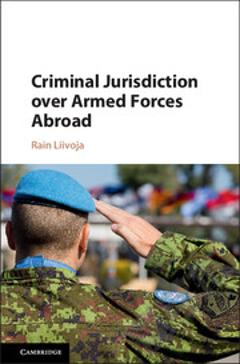Criminal Jurisdiction over Armed Forces Abroad
Rain Liivoja explores why, and to what extent, armed forces personnel who commit offences abroad are prosecuted under their own country's laws. After clarifying several conceptual uncertainties in the doctrine of jurisdiction and immunities, he applies the doctrine to the extraterritorial deployment of service personnel. Comparing the law and practice of different states, the author shows the sheer breadth of criminal jurisdiction that countries claim over their service personnel. He argues that such claims disclose a discrete category of jurisdiction, with its own scope and rationale, which can be justified as a matter of international law. By distinguishing service jurisdiction as a distinct category, the analysis explains some of the peculiarities of military criminal law and also provides a basis for extending national criminal law to private military contractors serving the state. This book is essential for scholars and practitioners in international and criminal law, especially in military contexts. Critically examines the doctrine of jurisdiction and immunities by clarifying numerous conceptual uncertainties. Compares the jurisdictional claims of several states over their service members, disclosing the extent of jurisdiction claimed in the military context. Distinguishes service jurisdiction as a distinct category and provides a basis for extending national criminal law to private military contractors serving the state.
{{comment.content}}








 京公网安备 11010802027623号
京公网安备 11010802027623号